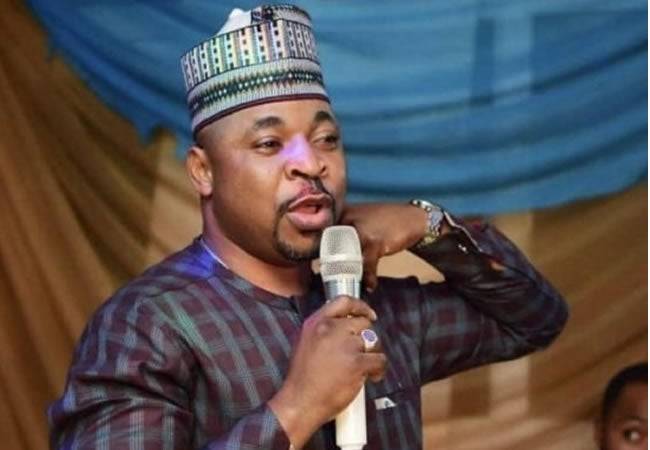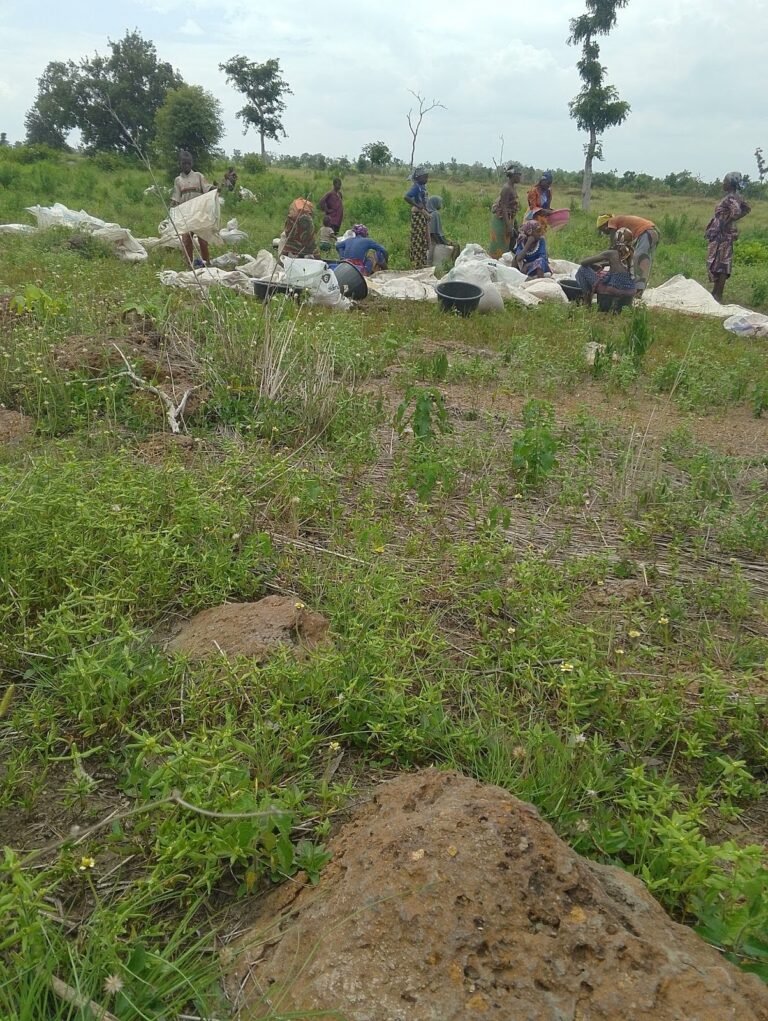It was 7am on a Monday in September, and Afonja drove his commercial bus out of the park at Oyingbo, a busy road in Lagos city. In a leased danfo, popularly known as “Jakande,” a yellow bus that serves as an unofficial commercial public transport in the city, he drifted to the opposite lane to escape the stagnant traffic congestion.
Afonja had just broken a traffic law and risked months of jail time if caught by a traffic officer, but he “cannot wait in that traffic because by noon I have bills to pay,” he said.
Unfortunately, his hastiness was quickly cut short by a uniformed man known as Agbero who demanded Afonja pay the Union dues, an informal licence fee granting commercial drivers permission to carry passengers. He refused because, he said, he had paid at the park before setting off the road.
But the man ignored Afonja’s defence. “You must give me the money,” he said
“I won’t give you,” Afonja fired back. He attempted to drive past the man. Angrily, the Agbero punched the side mirror by the driver’s side, and it shattered, with broken glasses on the floor.
Afonja is a full-time driver in Lagos, and he pays between N3,000 ($6.7) and N4,000 ($9) per day to the Agberos; sometimes to buy the tickets, and sometimes to secure a pass and avoid trouble. But each time he pays is to his detriment.
With the fuel he buys, the cost of maintaining the bus, and paying the Agberos, he said he barely gets anything left other than what he would use to eat.
“Despite working more than 12 hours every day, I don’t have anything to call my own except the bus I drive and the clothes I wear to work,” he said.
Agbero literally means “to carry passengers,” and this was what they were known for back in the days when they first started and there was no stable price to give them. But all these are different now.
These men (Agberos), acting under the directive of the former National Union Road Transports Workers (NURTW), now the Parks and Garages Management Committee, collect dues from buses, tricycles, and motorcycles.
The fee is flexible from bus stop to bus stop. According to a report by Aljazeera, drivers pay the dues on three different occasions every day. Booking is the first, which authorises them to start work at the park every morning before any trip; they pay a “loading fee” every time a driver stops at a bus stop to carry passengers; and the third is undefined but usually paid mostly twice per day.
Drivers who refuse to yield to Agbero’s demand for any of these dues might not escape engaging in physical fights with them.
Afonja reminisced about a day he was driving from Lagos Island to Oyingbo, but traffic congestion held him along the way.
“Where I stopped waiting for the traffic jam to clear, some passengers entered my bus. As I was passing through the park at Oyingbo, one of the Agberos stopped me and asked that I pay. I told them I wasn’t going to pay because the passengers weren’t from the bus stop. He started a fight with me, and I ended up paying.
“I cannot count how many times I’ve fought with them,” Afonja said. “The money is more precious to them than human life.”
In March, Lagos State Governor, Babajide Sanwo-Olu, banned the activities of the NURTW in the state and introduced the Lagos State Parks and Garages Management Committee as a substitute. He also appointed Alhaji Musiliu Akinsanya, popularly known as MC Oluomo, the last Chairman of the NURTW before its disbandment, as the new head of the Committee.

Though the name of the union changed, the leadership remained the same, and the operation has since doubled down.
On October 21, the drivers under the aegis of the Joint Drivers Welfare Association of Nigeria (JDWAN) boycotted Lagos roads and declared a seven-day strike in protest of extortion by members of the Lagos State Parks and Garages Management Committee.
“Drivers and commuters have had a brimful extortion and harassment from the motor park management and caretaker committee members popularly known as Agbero.” Abiodun Akintade, the National Leader of JDWAN, said in a statement.
Prince Olasunkanmi, a retired civil servant from the Lagos State Ministry of Transportation, said the power Agberos wield in Lagos is unchecked. “And that’s the reason they behave the way they like,” he said.
If any government wants to curtail their excesses, Olasunkanmi suggested such a government needs to be stringent on them.
Lagos inflated transport fare
Shukurah Yusuf is a sales girl at Lagos Island. She journeys from Ijora Badia where she lives to her place of work everyday. And everyday, she said she spent at least N700 ($1.58) on transportation alone, which is almost half of the N1,500 ($3.39) she collects as wages. From the remaining N800 ($1.81), she spends N600 ($1.35) on her daily two-square meal.
She noted the high cost of transportation in Lagos State contributed to many Lagosians having nothing less than what they would eat, no matter how hardworking they are.
“I’m sure what makes food costly is because the vendors spend so much money transporting their stuff to prepare the food,” said Yusuf.
According to the Nigeria Bureau of Statistics (NBS), the commuters’ average transport fare for bus journeys increased by 10 percent in April 2022 to N458.8 ($1.04). At the peak of transportation fare inflation in August, largely caused by hikes in the price of petroleum products, the NBS revealed that the high cost of transportation was one of the factors pressuring inflation in the country.
“The unfettered and violent extortion by the Lagos State Government agents [Agberos] has not only increased transportation fare beyond the affordability of workers but also made every good and service out of the reach of the poor Lagosians,” noted Akintade.
Agbero ‘informal tax’ going to private pockets
According to a report by the International Centre for Investigative Reporting (ICIR), Agberos generate up to N123.078 billion ($300.19 million) from the informal taxes it collects from drivers each year. And these funds rarely get to the government’s coffers.
“First, the amount is not recorded in Lagos State’s annual financial statements,” the investigative report revealed.
“There are no sections in the financial statements where details of the state’s transportation revenue are recorded or explained.
“Second, in the State Auditor-General’s Comments for the Audited Account of Lagos State, revenue is defined as ‘only the gross inflow of economic benefits or service potential received or is receivable by the entity on its own account.’”
“The Auditor-General’s report further says that ‘those amounts collected as an agent of government or on behalf of third parties are not considered as revenue.’”
“The implication is that transport taxes collected by Agberos, who act as agents, are not considered as revenue,” the report reads in part.
Our reporter approached the union leaders at Eyin Eyo, along the Idumota Axis, for comment but was first snubbed, then yelled at. One of them said, “Iwo ni won ra n wa abi, to ba fe je iya oya japa,” “Was it you that they sent? Now leave before you are beaten.”














